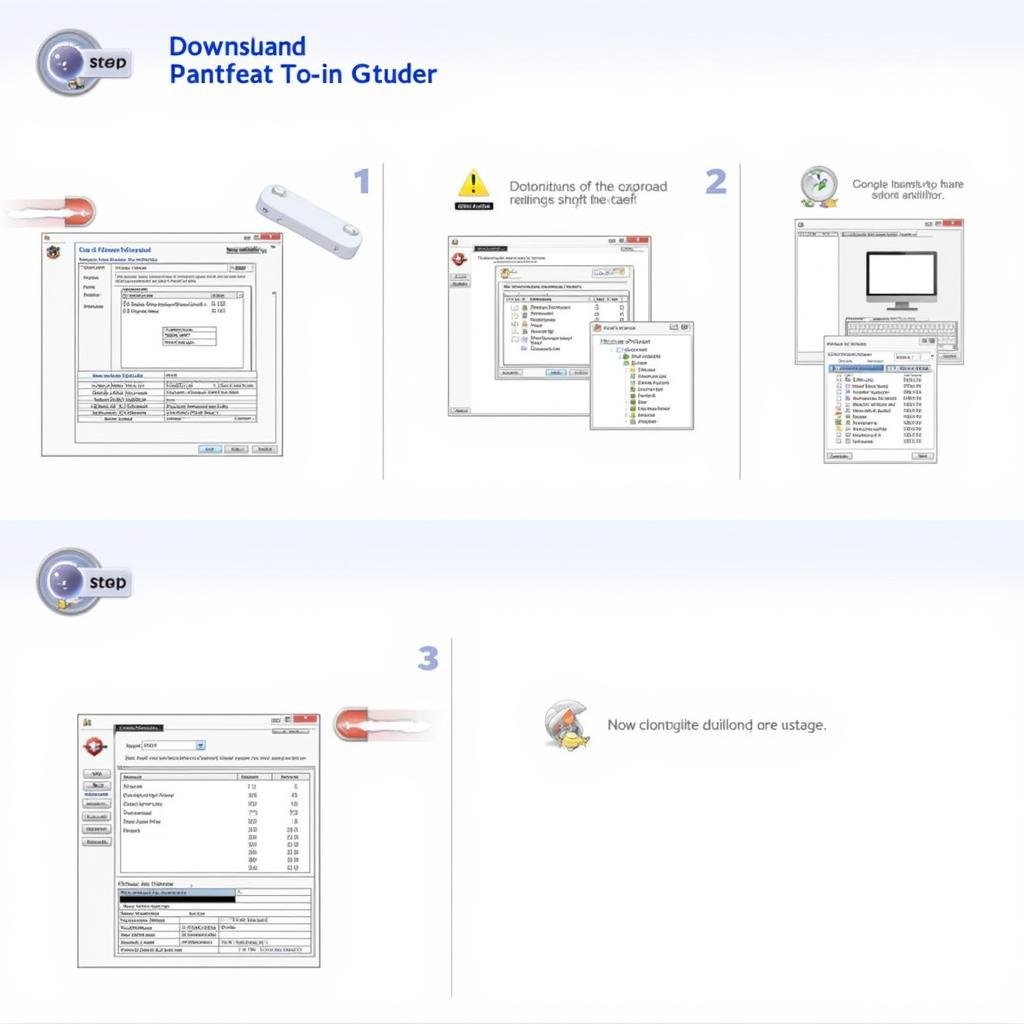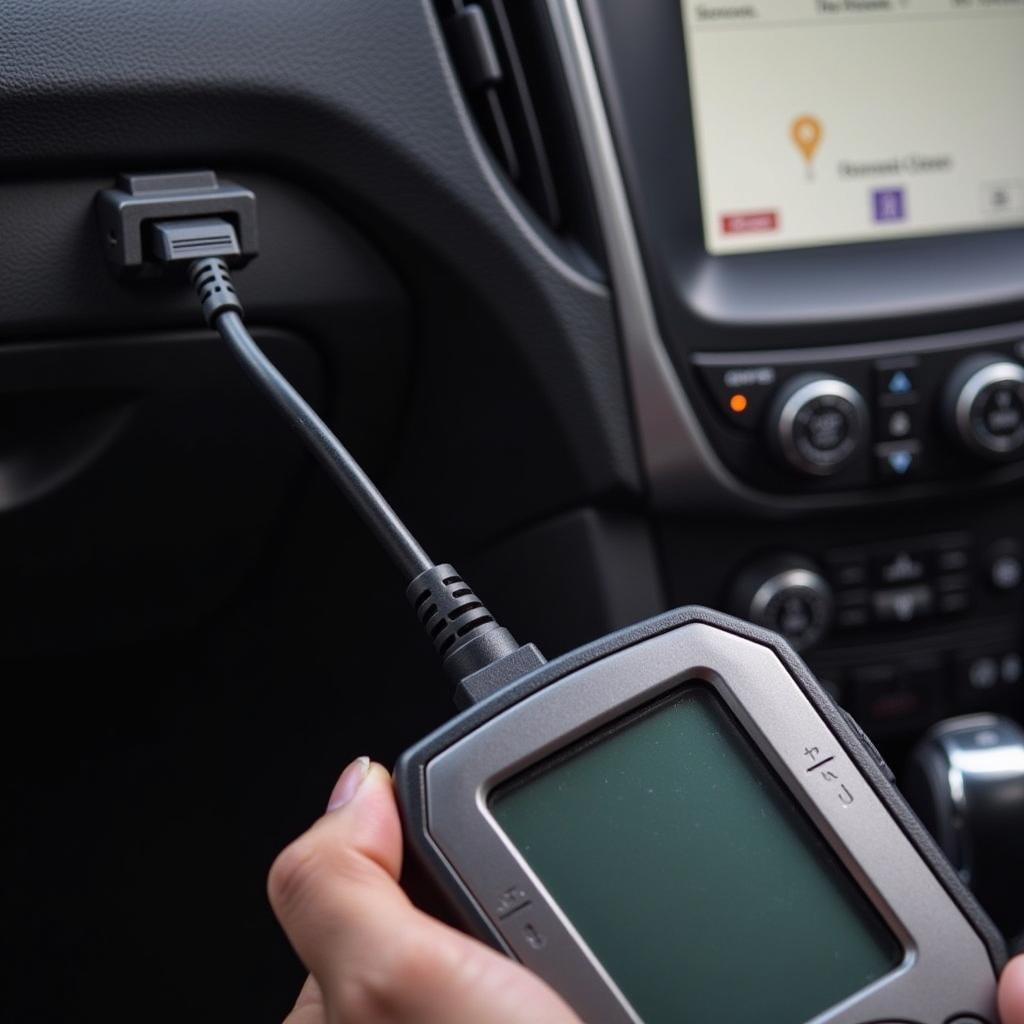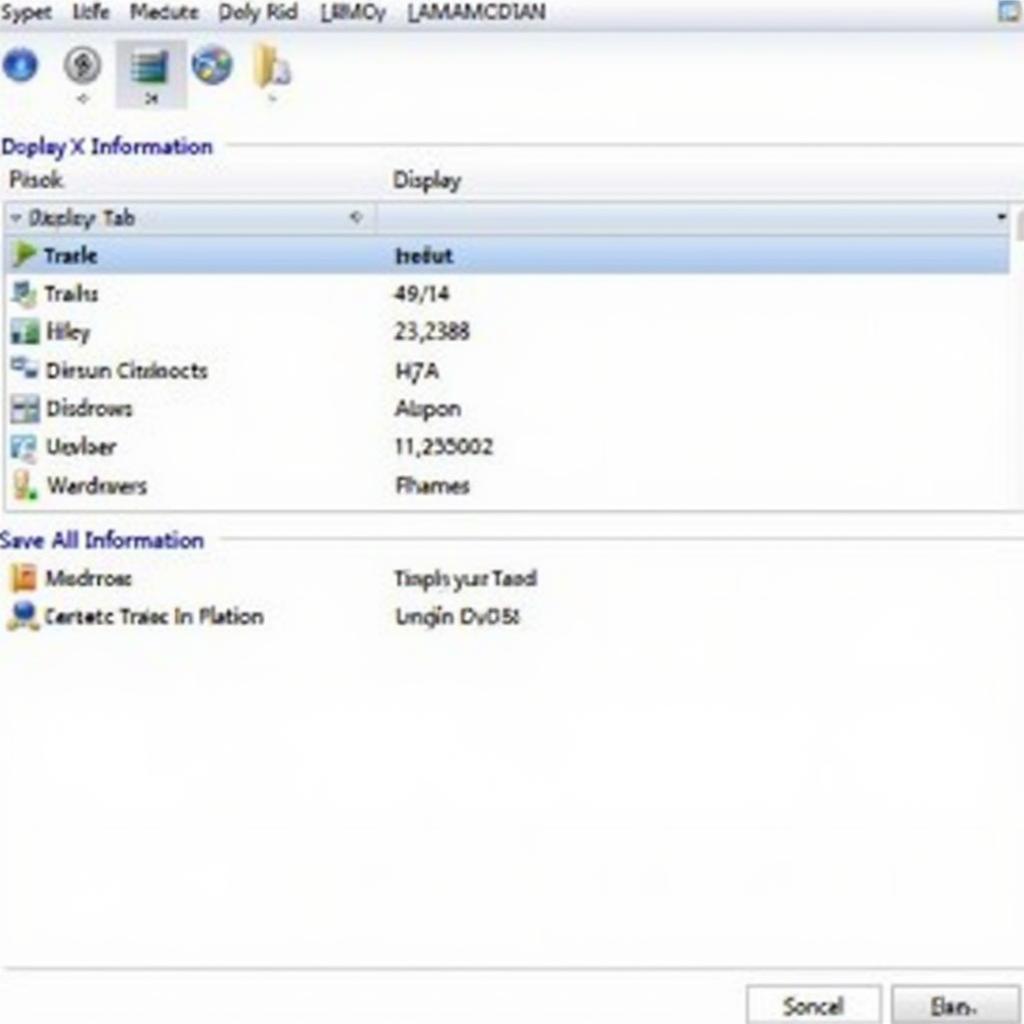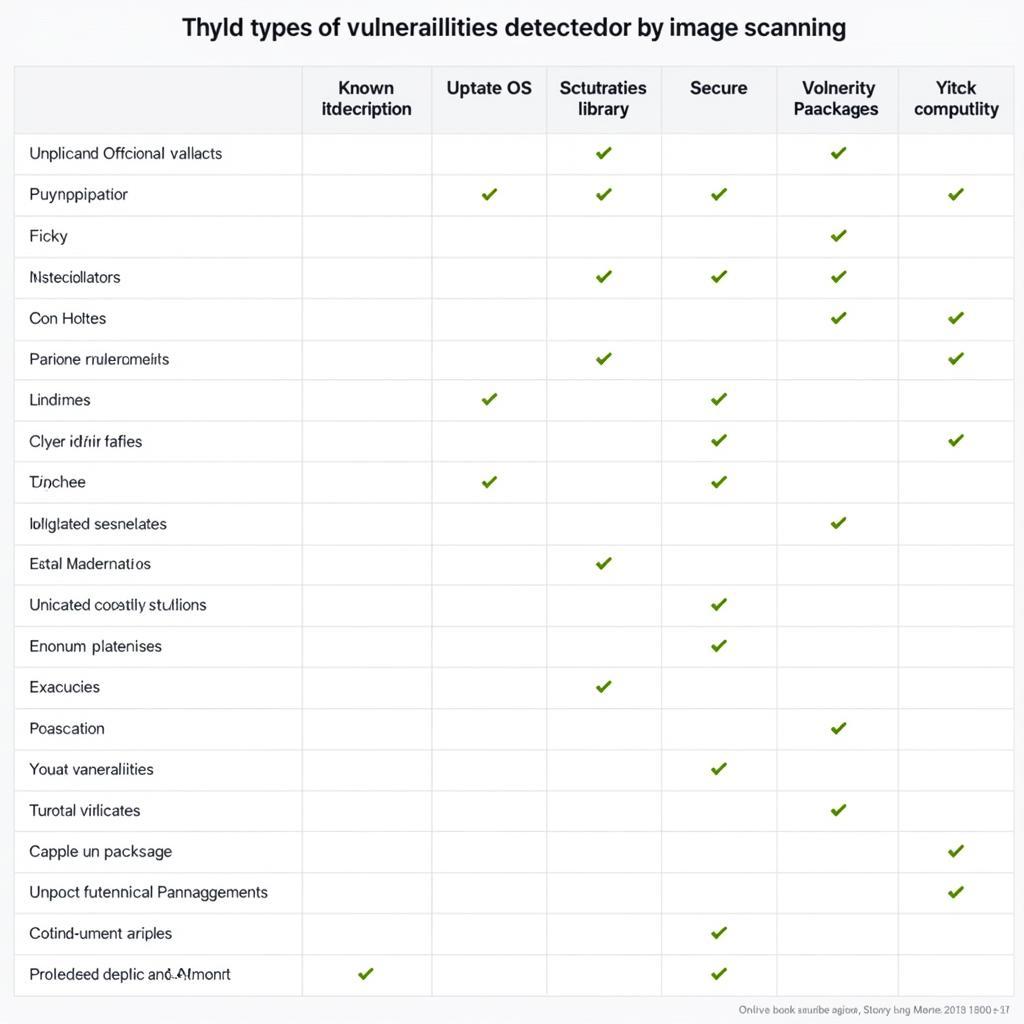A Memory Scan Tool is an essential tool for any car owner or mechanic who wants to take the mystery out of car problems. It allows you to delve into your vehicle’s computer system, retrieve Diagnostic Trouble Codes (DTCs), and understand what’s going wrong under the hood. This can save you time, money, and frustration in the long run.
What is a Memory Scan Tool and Why Do You Need One?
Imagine this: your check engine light flashes on, and you have no idea why. In the past, this meant a trip to the mechanic and a hefty bill just to diagnose the problem. Now, with a computer memory scan tool, you can read the codes yourself.
This handy device plugs into your car’s OBD-II port (usually located under the dashboard) and acts as a translator between you and your car’s computer. It retrieves those cryptic DTCs, which are basically standardized codes that indicate specific areas of concern within your vehicle’s systems.
More Than Just Reading Codes: The Benefits of Memory Scan Tools
While reading DTCs is a primary function, memory scan tools offer a range of features that can empower you to take control of your car maintenance:
- Clear Codes: After fixing a problem, you can use the scan tool to clear the codes and turn off the check engine light.
- Live Data Stream: This feature allows you to see real-time data from your car’s sensors, such as engine speed, coolant temperature, and oxygen sensor readings. This information can be invaluable for diagnosing intermittent problems or for monitoring your car’s performance over time.
- Component Activation: Some advanced scan tools let you activate specific components, such as the fuel pump or ABS system, to test their functionality without having to start the engine.
- Freeze Frame Data: When a fault code is stored, the scan tool also captures a snapshot of the engine’s operating conditions at that moment. This “freeze frame” data can help pinpoint the root cause of the problem.
 mechanic analyzing data on a memory scan tool
mechanic analyzing data on a memory scan tool
Choosing the Right Memory Scan Tool: Finding Your Perfect Fit
The world of memory scan tools can seem overwhelming, with options ranging from basic code readers to professional-grade diagnostic systems. Here’s what to consider when choosing:
1. Your Skill Level: If you’re a car enthusiast who likes to tinker, a basic code reader that displays and clears DTCs might be sufficient. For more in-depth diagnostics and access to advanced features, you’ll need a more sophisticated scan tool.
2. Vehicle Compatibility: Ensure the scan tool is compatible with your car’s make, model, and year. Most modern scan tools work with a wide range of vehicles, but it’s always best to double-check.
3. Features: Determine which features are most important to you. Do you need live data streaming? ABS diagnostics? Consider your specific needs and budget.
4. User Interface: Choose a scan tool with a clear and easy-to-navigate interface. Look for features like a backlit display, intuitive menus, and clear instructions.
5. Updates: Ensure the scan tool you choose offers software updates to keep up with the latest vehicle models and technologies.
“Investing in the right memory scan tool is like having an X-ray vision for your car,” says John Smith, Senior Automotive Engineer at CARW Workshop. “It empowers you to understand your vehicle’s health, catch issues early, and make informed decisions about repairs.”
Taking Control of Your Car Care with a Memory Scan Tool
A memory scan tool is a powerful tool that puts you in the driver’s seat when it comes to car maintenance. By understanding the codes and data your car provides, you can diagnose problems early, avoid unnecessary repairs, and keep your car running smoothly for years to come.
Ready to unlock the power of diagnostics? Contact CARW Workshop today at +1 (641) 206-8880 or visit our office at 4 Villa Wy, Shoshoni, Wyoming, United States, to find the perfect memory scan tool for your needs.
FAQs About Memory Scan Tools
-
Can I use a memory scan tool on any car? Most modern cars manufactured after 1996 have a standard OBD-II port, making them compatible with most scan tools. However, always verify compatibility with your specific vehicle before purchasing.
-
Will a memory scan tool tell me how to fix my car? A scan tool provides diagnostic information, but it doesn’t offer step-by-step repair instructions. You’ll need to consult a repair manual or seek professional help for that.
-
How often should I use a memory scan tool? It’s good practice to scan your car for codes periodically, even if there are no warning lights illuminated. This can help catch potential issues early on.
-
Are expensive memory scan tools always better? Not necessarily. The best tool for you depends on your needs and skill level. A basic code reader might be sufficient for casual users, while professionals may need more advanced features.
-
What are DTCS of a scan tool? DTCs stands for Diagnostic Trouble Codes. They are standardized codes that indicate specific areas of concern within a vehicle’s systems. You can learn more about what are dtcs of a scan tool on our website.
-
Can I clear codes on my car with a scanner? Yes, most memory scan tools allow you to clear the stored DTCs and turn off the check engine light after you have addressed the underlying issue.
-
Do I need a special memory scan tool for a 2003 Silverado? While most scan tools work on a wide range of vehicles, it’s always best to check for compatibility. You can find more specific information about an 03 Silverado scan tool on our website.







One Response